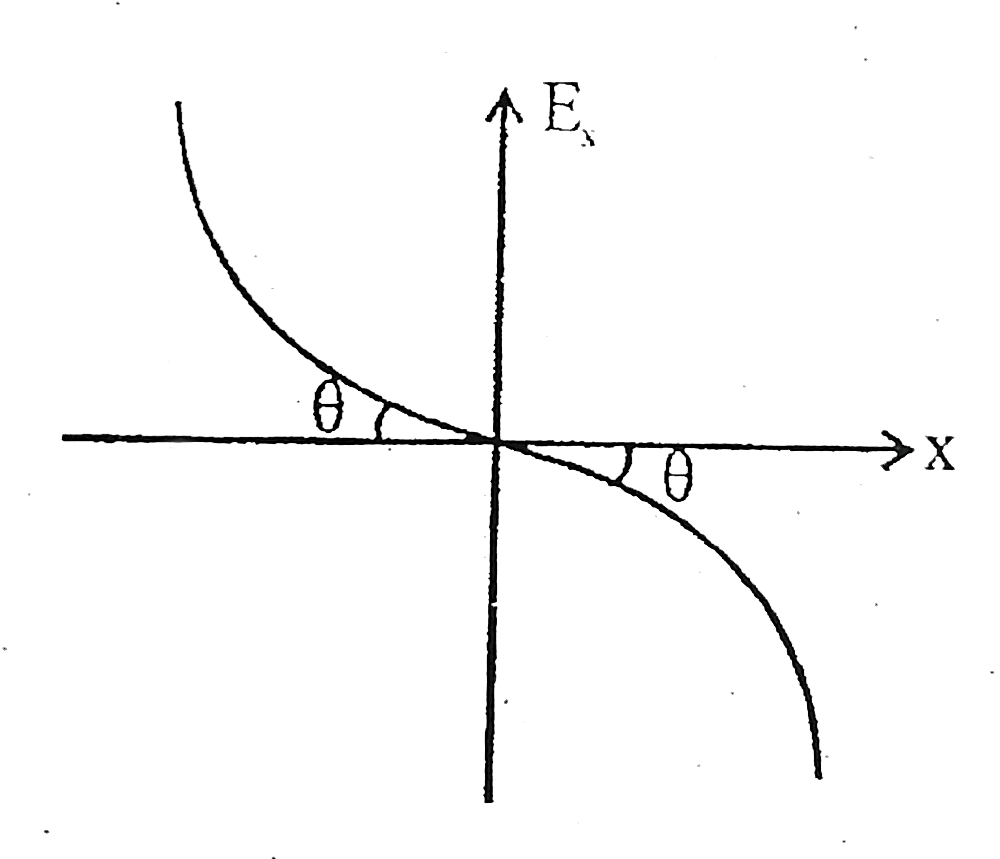A region surrounding a stationary electric dipoles has
Magnetic field only
Electric field only
Both electric and magnetic fields
No electric and magnetic fields
The correct Answer is:B
To solve the question regarding the region surrounding a stationary electric dipole, we can break it down into the following steps:
Step 1: Understanding the Electric Dipole
An electric dipole consists of two equal and opposite charges, typically represented as +q (positive charge) and -q (negative charge), separated by a small distance 'd'. The dipole moment (p) is defined as p = q * d, pointing from the negative charge to the positive charge.
Hint: Remember that an electric dipole is characterized by two charges of equal magnitude but opposite signs.
Step 2: Analyzing the Stationary Condition
The problem specifies that the dipole is stationary. This means that both charges are at rest and not moving. The key point here is that only moving charges create a magnetic field.
Hint: Recall that magnetic fields are generated by moving charges or current. Since the dipole is stationary, it does not produce a magnetic field.
Step 3: Electric Field Generation
Even though the dipole is stationary, it still generates an electric field around it due to the presence of the positive and negative charges. The electric field lines emanate from the positive charge and terminate at the negative charge.
Hint: Visualize the electric field lines: they start from the positive charge and end at the negative charge, indicating the direction of the electric field.
Step 4: Conclusion on Fields Present
Since the stationary dipole does not produce a magnetic field, but does produce an electric field, we can conclude that in the region surrounding a stationary electric dipole, there exists an electric field but no magnetic field.
Hint: Summarize the findings: stationary dipoles produce electric fields but do not produce magnetic fields.
Final Answer
In conclusion, the region surrounding a stationary electric dipole has an electric field but no magnetic field.
An electric dipole consists of two equal and opposite charges, typically represented as +q (positive charge) and -q (negative charge), separated by a small distance 'd'. The dipole moment (p) is defined as p = q * d, pointing from the negative charge to the positive charge.
The problem specifies that the dipole is stationary. This means that both charges are at rest and not moving. The key point here is that only moving charges create a magnetic field.
Even though the dipole is stationary, it still generates an electric field around it due to the presence of the positive and negative charges. The electric field lines emanate from the positive charge and terminate at the negative charge.
Since the stationary dipole does not produce a magnetic field, but does produce an electric field, we can conclude that in the region surrounding a stationary electric dipole, there exists an electric field but no magnetic field.
In conclusion, the region surrounding a stationary electric dipole has an electric field but no magnetic field.
Topper's Solved these Questions
- BOOK - ERRORLESSCHAPTER - ELECTROSTATICSEXERCISE - NCERT BASED QUESTIONS (Electric Flux and Gauss.s Law)27videos
ELECTROSTATICS
- BOOK - ERRORLESSCHAPTER - ELECTROSTATICSEXERCISE - NCERT BASED QUESTIONS (Capacitance)59videos
ELECTROSTATICS
- BOOK - ERRORLESSCHAPTER - ELECTROSTATICSEXERCISE - NCERT BASED QUESTIONS (Electric Field and Potential)129videos
ELECTROSTATICS
- BOOK - ERRORLESSCHAPTER - ELECTRONICSEXERCISE - Assertion & Reason26videos
ELECTRONICS
- BOOK - ERRORLESSCHAPTER - MAGNETIC EFFECTS OF CURRENT EXERCISE - ASSERTION & REASON18videos
MAGNETIC EFFECTS OF CURRENT
Similar Questions
Knowledge Check
- Question 1 - Select One
A region surrounding a stationary electric dipoles has
Aelectric field onlyBmagnetic field onlyCboth electric and magnetic fieldsDneither electric nor magnetic fields - Question 2 - Select One
The total electric flux leaving a spherical surface of radius 1 cm and surrounding an electric dipole is
Aqε0BzeroC2qε0Dinfinite - Question 3 - Select One
Electric dipole moment is
AscalerBneither scaler nor vectorCa vector directed from −q→+qDa vector directed from +q→−q
Electric Dipole|Examples
View SolutionNet charge on an electric dipole is ………….. .
View SolutionElectric dipole moment is
View SolutionVariation of x-component of electric field with x-coordinate in a region is given in the graph. A small electric dipole having dipole moment p0ˆi is placed at origin, then net force on the dipole is:
 View Solution
View SolutionAt a point on the axis of an electric dipole
View Solution

